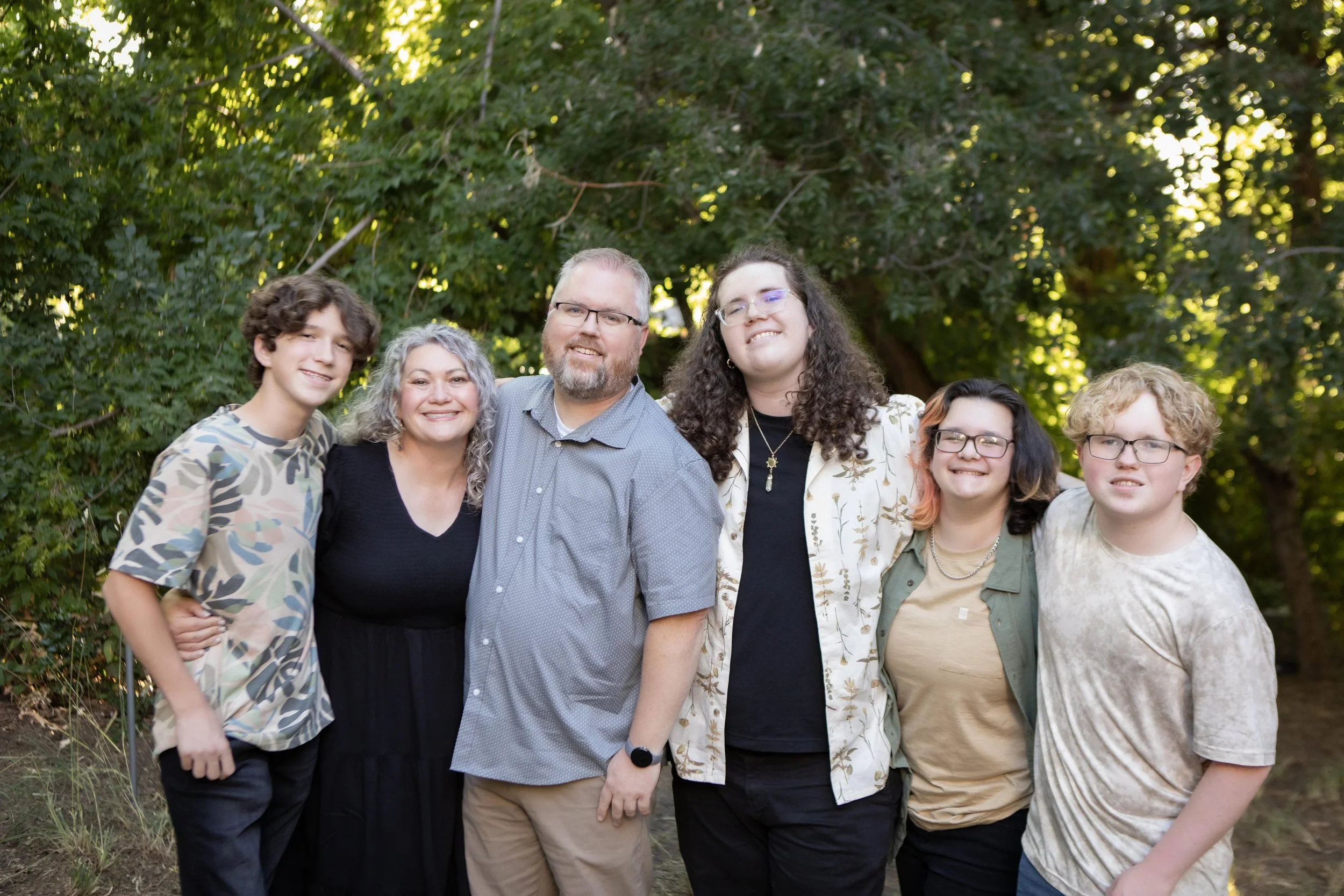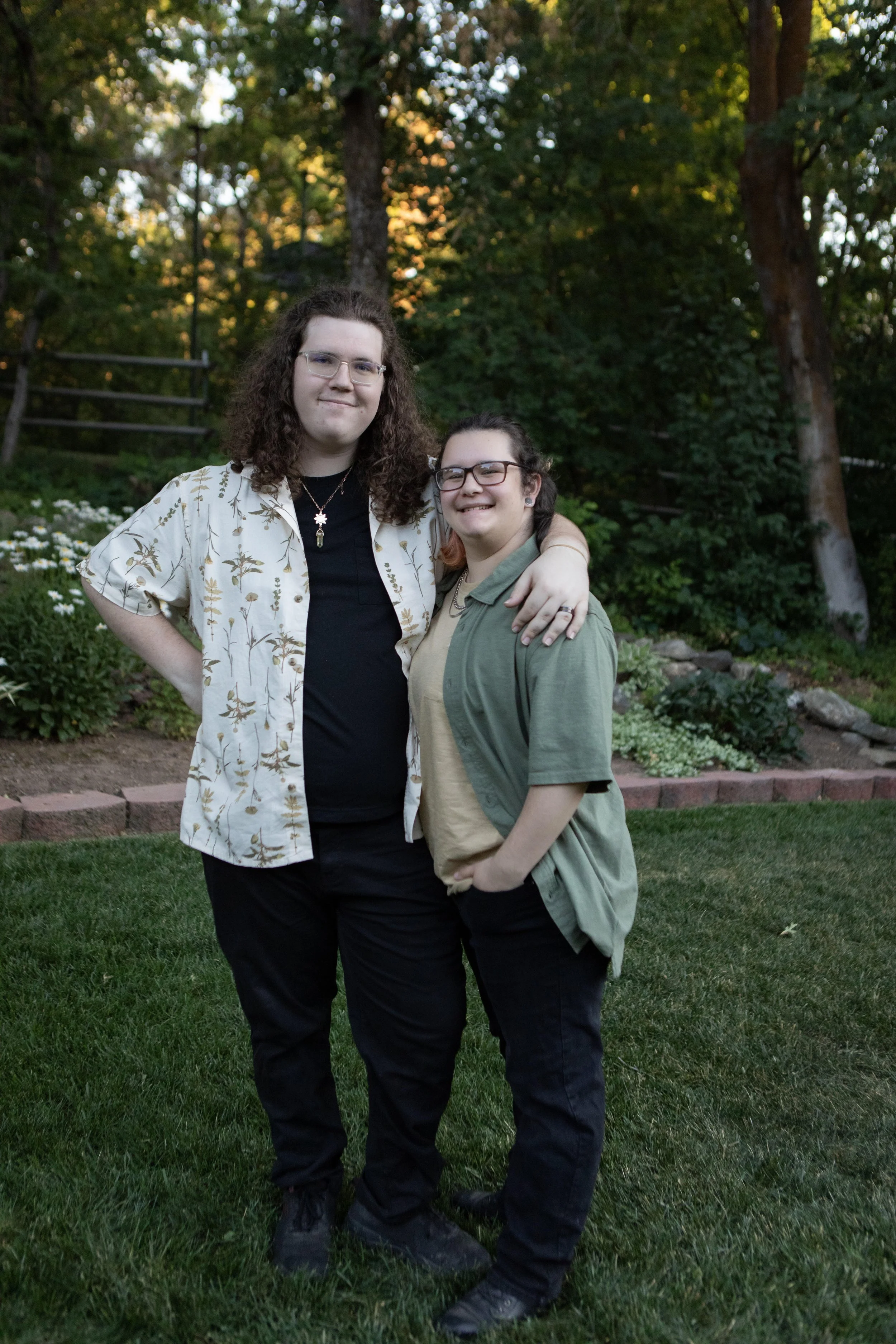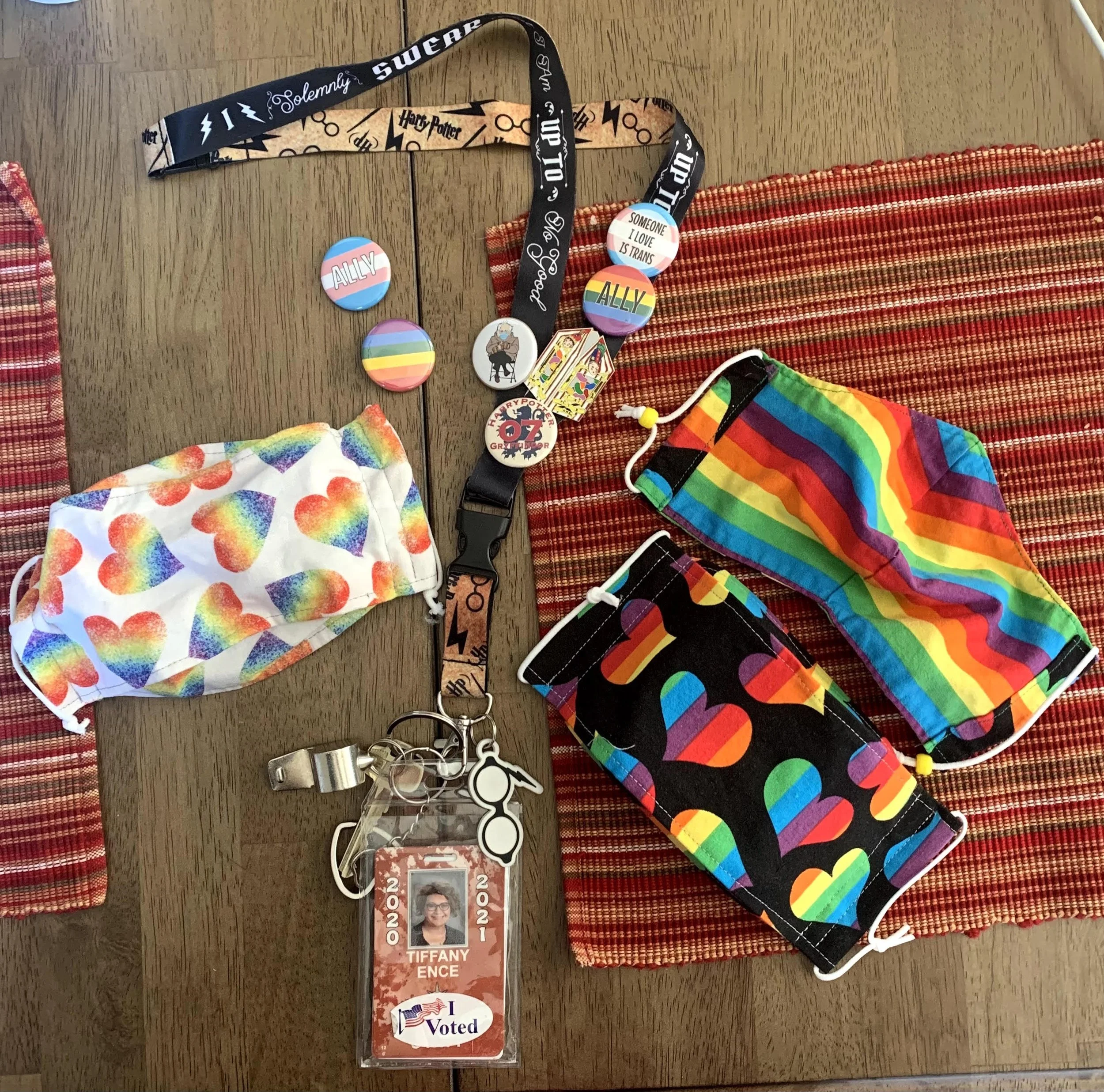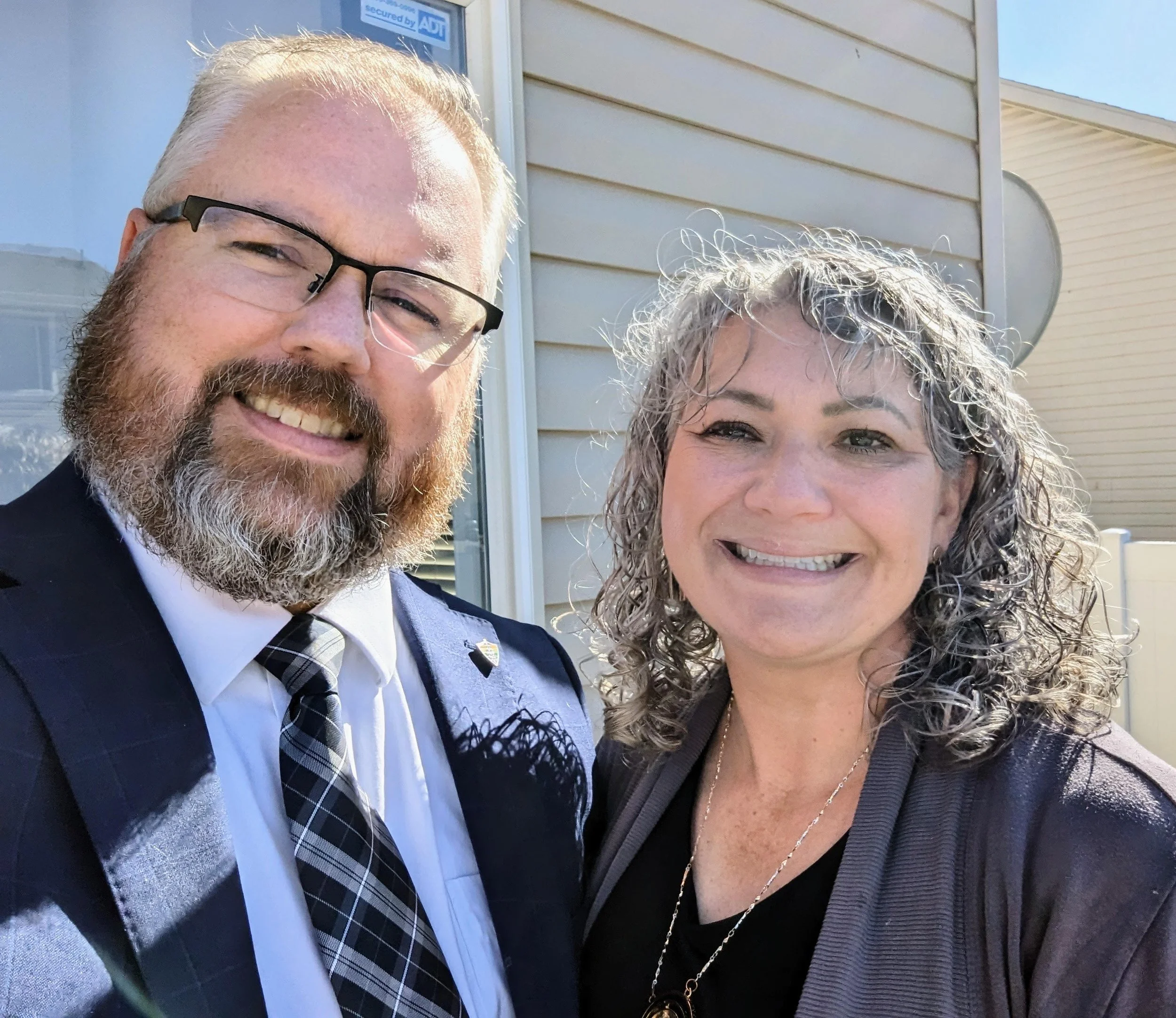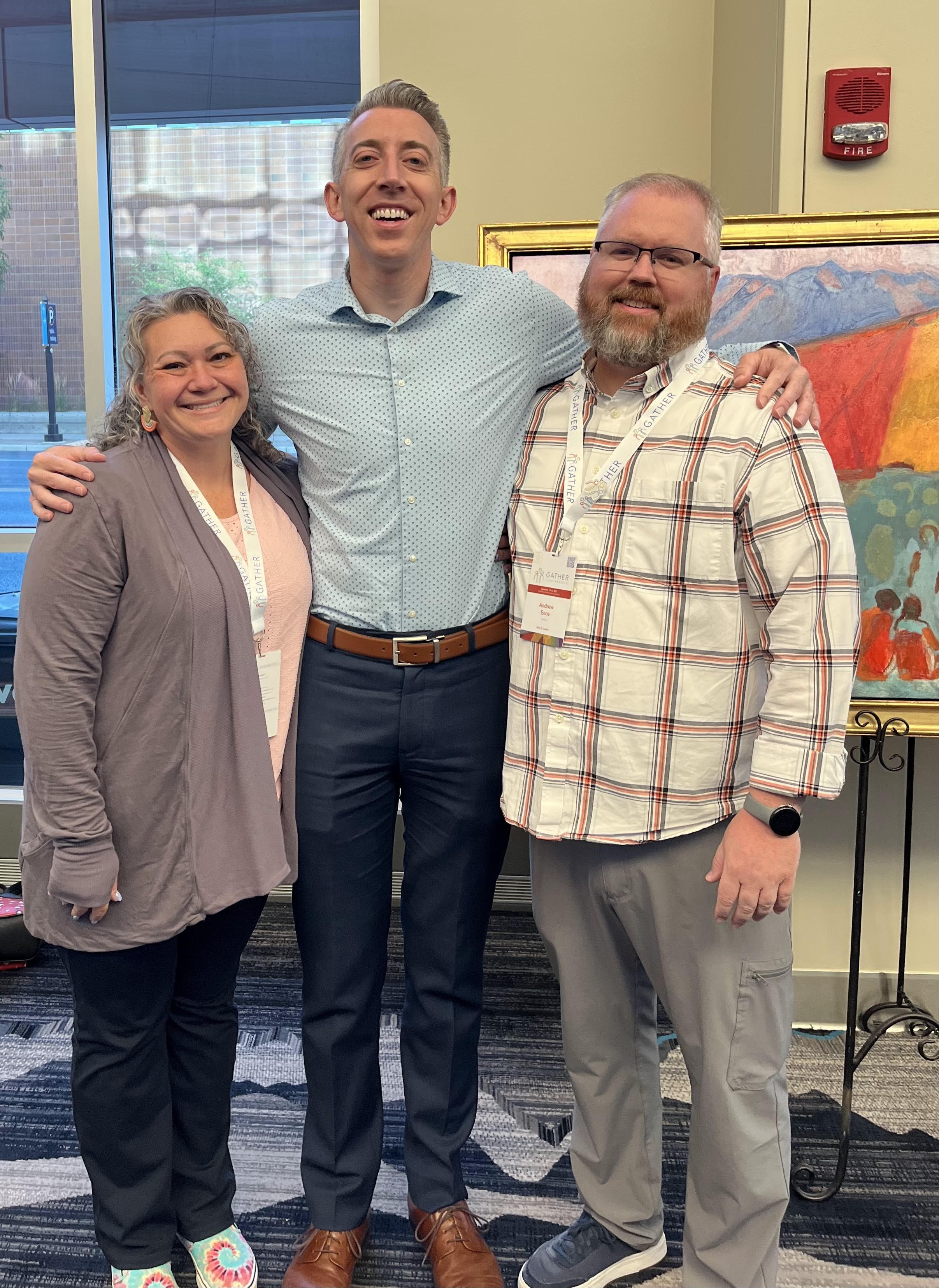In February of 2020, Andrew and Tiffany Ence of Stansbury Park, UT were preparing for a trip to Italy, where Andrew had served a mission for the LDS church. It was the first time they’d be leaving their three kids (Winter—now 20, Matthew—17, and AJ-13) for an extended period. Tiffany went downstairs one Sunday morning to see if they were ready for church, and to talk to her oldest about expectations while they were gone. Winter started crying and said, “I don’t want to go to church.” Then and there, Winter dropped the bombshell that they were bisexual. Winter begged Tiffany not to tell Andrew. Tiffany reassured Winter their dad would be more understanding than they thought, while silently fearing what Andrew might actually say about the situation. She delayed the conversation, but a few days before their flight to Italy, Andrew told his wife he’d seen a text on Winter’s phone that she should be aware of. Responding to a girl who’d texted, Winter replied, “I feel like I need to tell you—I know you like me, but I’m bisexual.” Tiffany looked at her husband with trepidation and said, “What do you think?” Andrew’s reply was a massive relief: “We just need to love him.” (Winter, who is nonbinary, now prefers they/them pronouns.)
Unsure of what their next steps should be, Tiffany simply asked Winter, who was 16 at the time, to wait until they turned 18 to fully express their true self. She was terrified of what the response would be from their very conservative community. She says, “A lot of that had to do with our impression of how the church would respond.”
Then the pandemic happened, and the whole world shut down.
Winter was an essential worker as a cashier at a grocery store and struggled having to deal with difficult people at work all day, then come home and only be with their family, no friends. They fell into a depression. It was around this time that Winter came out as pansexual, saying “I love everyone,” and changed their name from the birth name they’d been called for 17 years to their preferred name, Winter. Andrew says, “As much as I said previously ‘Let’s just love him,’ I found myself pushing back on this, thinking how hard it would be, personally, to make those changes. We argued with each other and against each other as a couple.” Tiffany concurs, “It took us awhile to realize we were overreacting.” But it was hard for them to hear the phrase “dead name” be used to identify what they prefer to call the “birth name” they’d given Winter. Tiffany says, “All our kids have family names. When you say ‘dead name,’ you’re talking about the name of my Grandpa William.” It took Tiffany and Andrew some time to understand that Winter didn’t feel the same way about the name.
Tiffany now laughs when she hears people talk about how wonderful home church was during the pandemic. “For us, it was not fun. It was like pulling teeth, it was so hard to get our kids together.” Tiffany found herself inwardly struggling as well, unsure of whether she could support the church anymore, feeling that the church didn’t support her child. Tiffany had been raised by parents who she felt never chose her—her mom was a recovering addict, and her dad died by suicide. “When I became a mother, I knew I would always choose my children, no matter what,” she says. Andrew, too, was wondering if he needed to put some distance between himself and the church. It was at this time, in the fall of 2020, that Andrew got called into a new bishopric. Tiffany says, “I felt like that was Jesus grabbing the back of my shirt and saying, ‘Nope, we’re going to keep you here’.” Andrew, too, was comforted by the bishop saying he was aware of what the Ences were going through at home and thought they would have valuable experiences to share. These feelings were confirmed quickly by multiple friends and neighbors who were also experiencing similar challenges.
Andrew recalls Winter’s last couple years of high school being rough, with them starting to push back on the typical rules parents place on teens. It felt like every weekend was a battle with Winter. Sundays during this time just didn’t rejuvenate them the way they once had. Andrew remembers one such Sunday during this time, where a friend on the high council greeted him and asked about his weekend. The friend saw through Andrew’s, “It’s fine,” response and recommended a Liahona article that had come out a year before in July of 2020 called “You Love, He Saves” by Krista Rogers Mortensen.
Andrew and Tiffany say that article changed everything for them. They’d go on their nightly walks and talk about all they were experiencing and that they were in agreement of what to do but unsure how to do it. That article taught the concept that their only duty as parents was to love their children; it’s Christ the Savior who saves. Andrew says, “It changed our perspective. We didn’t have to stress anymore over them going or not going to church. We could just be in the right place to show love. That’s what has driven us since.”
In her work life, Tiffany started to wear rainbow pins on her lanyard at the charter school where she taught, indicating she was a safe space. She freely shared her experiences about Winter to her coworkers. After hearing some troubling comments about LGBTQ+ kids from teachers at her school, she asked if she could give a ten-minute presentation at a staff meeting to educate others about the trans and nonbinary community and preferred pronouns, and the importance of being open to just listening and not inserting your religious or political opinions. This opened a lot of conversations she feels have been productive. One coworker, whose child had just come out as trans, was struggling because her husband had responded with an, “I will choose my temple recommend first.” The friend asked if the couples could go to dinner, and Tiffany’s friend was so relieved that Andrew was able to speak to her husband about how he had been processing everything in a more supportive way. The husband was able to learn what the Ences had learned – he just needed to love his child.
Tiffany now teaches first grade in a public school, and feels she has to be more subtle about her advocacy, but she still wears rainbow earrings and hair clips. Tiffany feels, “If you can’t be a safe space for all, that’s a sad thing as an educator. By all means, send those kids to me. Like if a kid has disabilities, you wouldn’t say, ‘That person just needs to learn how to talk or walk differently.’ Why would you make any negative comments about anyone on the margins?” As her county has lost more than a few LGBTQ+ kids to suicide, Tiffany feels strongly about speaking out and would love to turn that into a career.
Tiffany and some friends went to a presentation Ben Schilaty did at a library, and afterward, asked Ben if he’d come speak to their stake. He said he would as long as their stake president was on board. Tiffany feared it would be a flat out no from the stake president, but was surprised when he considered the prospect, saying in the seven years he had been in his role, no one had ever approached him about having a presentation like this before. After thinking about it, he said he’d like to start by having the Ences be the ones to share their experiences with the high council to gauge their feelings on the topic. The high council agreed, and the next step was for the Ences to present their story with the stake leadership at large. Right before this plan was executed, the stake presidency was released, and a new stake president was called. Tiffany approached the new stake president a couple months ago to ask whether he was aware of the plan and was told to send an email. Every time he sees her, he says, “Waiting for your email, Sister Ence.” She still feels it’s an important endeavor to help educate people so families like theirs don’t feel alone the way they have, but hesitates at the process of putting herself out there, knowing the opposition she may encounter: “Even me five years ago would have judged me, ‘Well, she must not have been doing this with her kids…’ I used to think that way, too, but I’ve learned a lot.”
Reflecting on when Winter first came out, Tiffany says her mama bear heart just wanted to protect them. Winter had a few negative experiences at church and with a seminary teacher who said something, which led to them walking away. “They feel like an enemy of the church, that they are not wanted there.” But both Winter and their partner Jo, have expressed support of Tiffany and Andrew’s efforts to share their story and be there for others. Andrew has worn an “I’ll Walk With You” CTR-shaped pin every week to church for the last two years. When he was asked to remove it once after the bishop received complaints, Andrew responded, “If this is sparking conversation, then that’s a good thing.” The Ences’ younger two sons have also stopped attending church. They say, “Sometimes we feel like we’ve failed as LDS parents; but we’re just going to love our kids.” A friend at church once told Tiffany, “Don’t worry, someday we’re going to get a letter in the mail about Winter’s mission call.” Tiffany says she thought, “You can live in that fantasy world, but I’m choosing to love my kid. I’ll support them whether this is a phase or not. I just hope they can look back and know ‘my parents loved me’.”
Andrew and Tiffany say Winter has always been a loving and loyal child who stands up for what they believe. When they were in elementary school, the Ences got a call that Winter had gotten into a playground brawl because a kid was making fun of their cousin. Andrew says, “I know it’s one of those experiences where I’m supposed to be upset, but I was so proud of Winter standing up for their cousin.” After school, Winter’s uncle rewarded them with a Gamestop run. Musically inclined, Winter’s fourth grade teacher taught them the viola which expanded when a middle school band teacher encouraged Winter to also learn the clarinet, saxophone, guitar, and banjo. Winter always had an easy time making friends, and Tiffany wonders if this is what made them first identify as pansexual, feeling they wanted to love everyone across the LGBTQ+ friend group in which they identified.
The Ences recently attended the Gather conference and appreciated meeting other people who are in their same boat, and not just on social media. They were especially touched by Bree Borrowman’s presentation about what it takes to look in the mirror and get to a place where you like what you see. Andrew says, “To hear Bree’s experience and then to see the challenges the world puts on people just trying to do that. They are just trying to be happy within themselves. Four or five years ago, I might have thought that was silly, but now, I get it.”
Reflecting on their experience and progress, Andrew and Tiffany say, “We think we understand the path and game we’re playing of ‘holding to the rod.’ But there are still potholes that come. You can still twist your ankle. We may have felt that the church couldn’t support us in our choice to love our child and who they are becoming; but now, we see our experiences have value and a purpose and that’s why we’re here. That we as parents in the Church of Jesus Christ of Latter-Day Saints will love our children through the challenges and changes.”
















